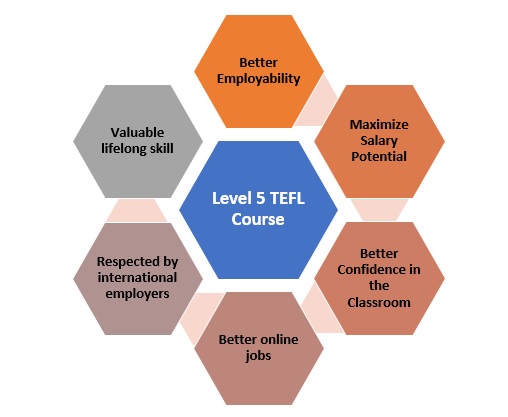
Different levels of TEFL qualifications make aspiring English teachers not only confused but also baffled. There are a lot of different TEFL/TESOL courses and providers nowadays. So, is there any difference between completed hours and levels of TEFL/TESOL courses? YES! We’re going to break down the facts of TEFL courses which will help you to know about the framework.
The international market for online and offline ESL teaching jobs is huge. Thus, the competition has never been easier out there. However, if you know the right course and the right choice of TEFL/TESOL certification, you will crack it successfully. Before jumping to the topic, let us understand the international standards for English language teaching.
What is the International Standard for TEFL Certification?
Following are the current international standards for teaching English as a second language.
Different Levels of TEFL/TESOL Qualifications
The higher the program level, the more the level of difficulty, work and period for completion of your course.
The basic entry-level TEFL/TESOL course is Level zero TEFL qualification or unregulated TEFL course. These types of courses are the cheapest hence tempting. Level 1 is a grade 3 to 1 under GCSE ( The General Certificate of Secondary Education ). A GCSE grade of 3 is the least pass grade under England, UK grading requirement.
Level 2 is a grade 4 to 9 under GCSE ( The General Certificate of Secondary Education ). It is a transitional pass. You learn the language along with learning skills. A Level 3 TEFL qualification is recognised all over the world. It covers all the sets of standards that fall under the Ofqual quality declaration.
Generally, TEFL/TESOL courses are measured in hours. 120 hours TEFL/TESOL certification has been the industry standard for some time now. It is also seen as the minimum amount of training essential to get started teaching English. Definitely, advanced training, can reinforce your CV and help to make it easier to secure work.
Well, if you already have a minimum of a BA degree in any discipline with some previous teaching experience, a 120-hour over a Level 5 is better for you. However, if you do not have a degree, you have no previous teaching experience and aiming to work in a country with a competitive jobs market or online, Level 5 is better for you.
Additionally, according to Ofqual’s qualification context, both the Level 5 TEFL course and CELTA are level 5 credentials. They are not equivalent qualifications rather they’ve been measured to be the same level of difficulty. CELTA focuses on teaching adult learners, while a Level 5 TEFL qualification covers how to teach English to a range of different learners.
Both the training are apt for finding work overseas. Generally, the salaries in the TEFL industry are determined by your experience. According to Ofqual, a level 5 TEFL course is the equal to a foundation degree, a diploma of higher education.
Advantages of a Level 5 TEFL Course
Here are the major benefits of a Level 5 TEFL course ---

With a Level 5 TEFL Course, you will get more—and better—jobs, both online and offline. However, without global accreditation from recognized and respected external bodies, a cheap TEFL course will be of no use. There are some TEFL courses higher than Level 5, such as the DELTA.
The Bottom Line
Well, if you are struggling to make a decision, go for the 120-hour TEFL course first. It is more frequently selected by the students to secure a placement and a job abroad. It is also cheaper and more flexible. Upskilling will always be an option for you, if you want to upgrade yourself. We hope you found this write-up informative.
Please note we are not a placement agency. Looking for earning a TEFL certification? If yes then call us at 1800 212 6400 or +916292137532. Chat with our TEFL expert if you have any questions, send us an email to find out more.